Reconciling veganism and triathlon
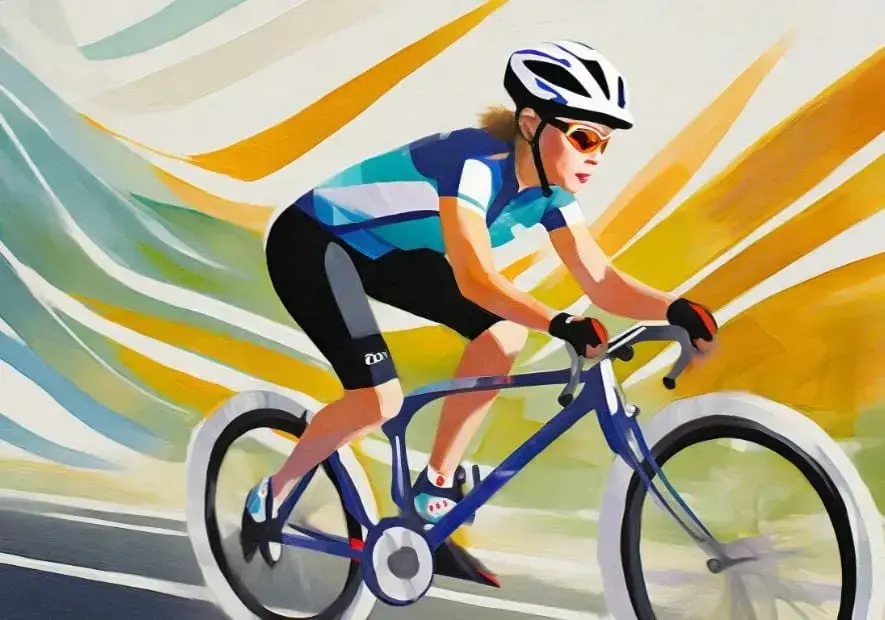
- 1. Introduction to Veganism and Triathlon
- 2. The Intersection of Veganism and Triathlon
- - Aligning Vegan Dietary Requirements with Triathlon Training
- - Dispelling Myths Around Protein Deficiencies in Vegans
- 3. The Vegan Athlete: Myth vs. Reality
- 4. Benefits of a Vegan Diet for a Triathlete
- - Enhancing Performance and Recovery with Plant-based Diet
- - Sustainability and Longevity in the Sport
- 5. Tips for a Successful Vegan Triathlete Journey
- 6. Challenges Faced By Vegan Triathletes and Overcoming Them
- 7. Conclusion: Embracing the Vegan Triathlete Lifestyle
1. Introduction to Veganism and Triathlon
Veganism, a lifestyle choice, has gained prominence as more people consciously make an effort to minimize their impact on the environment, while maximizing their health benefits. As a dietary plan, it consists primarily of plant-based foods, neglecting any animal-derived products. On the other hand, a triathlon, known as a challenging multi-discipline sport, combines swimming, cycling, and running in one event. Putting this rigorous physical demand on your body requires a well-rounded, energy-rich diet. The intersection between veganism and triathlon training might seem like a mismatch at first glance, but we're here to align these seeming polar opposites, and debunk prevalent myths surrounding protein deficiencies in vegan diets. This article will journey into the world of vegan triathletes, unravelling how they fuel their high-endurance training entirely on plant-power. Let's dive in!
- Understanding Veganism
In recent years, the inclination towards veganism has seen a robust surge globally. Veganism isn't merely a diet plan; it's a lifestyle choice committed to the ethics of causing 'no harm' to beings of all forms. Essentially, those adhering to veganism shun the consumption of all animal-based products, be it dairy, meat, eggs, honey, or any product derived from an animal source. What's the primary stand of veganism? It's about embracing a more plant-based diet and leading a life centered on compassion and considerate living. Vegans believe that all sentient beings have a right to life and freedom, hence they don't support industries that exploit animals for consumption or product use. A common misbelief is that a vegan diet lacks in necessary nutrients like protein, iron or calcium, leading to deficiencies. On the contrary, when properly managed, a vegan diet can provide all essential nutrients needed for a healthy life. The key lies in varying one's diet and incorporating a wide range of plant-based whole foods. From beans, lentils, and tofu to fruits, vegetables, and whole grains - the vegan diet can be as diverse as it is healthy. Remember, veganism isn't just a nutritional choice; it's a commitment to kinder, healthier living.
- An Overview of Triathlon Training
Diving into the triathlon realm calls for a deep and highly-structured level of training. A triathlon, fundamentally, involves three intense sports disciplines: swimming, cycling, and running. The comprehensive nature of this event demands not just physical stamina, but also a strong mental approach, necessitating a thorough understanding of both your body's capabilities and your mind's resilience. The sheer complexity of this sport forms a diversified workout routine, aiming at multiple muscle groups and developing a harmonious balance between strength, endurance, and flexibility. Triathlon training, therefore, becomes a journey of honing athletic skills in each discipline, and seamlessly transitioning between them—a critical aspect often referred to in the lingo as "bricks". Optimizing performance in a triathlon, however, is not purely about pounding the pavement, pedaling miles, or perfecting your stroke. It also revolves around strategic planning, integrated with adequate rest periods to allow your body to recover and grow stronger. Additionally, nutrition plays a key role in a triathlete's training schedule, forming the fuel to drive this rigorous physical exertion. With that said, it becomes crucial to integrate a well-planned diet, even more so when you aim to align it with vegan lifestyle choices. Being a vegan triathlete, hence, isn't just about breaking stereotypes within the sport, but also about striking a healthy balance between plant-fueled nutrition and exhaustive training. Remember, as a triathlon is truly a test of perseverance, so is the journey of aligning it with veganism.
2. The Intersection of Veganism and Triathlon
The intersection of veganism and the sport of triathlon is a fascinating confluence of discipline, endurance, and nutrition. While the idea of merging the rigorous physical demands of triathlon training with a vegan diet might seem like an intimidating endeavor, many athletes are sailing in this direction with impressive results. The key is understanding how to synchronize the vegan dietary requirements with the stringent needs of triathlon training. Forget the old myth that a vegan diet inevitably brings protein deficiencies. Plant-based diets, when properly balanced and supplemented, are capable of providing the necessary nutrients, protein included, to fuel your body through tough triathlon training sessions. Remember, it’s all about complementing your vegan lifestyle with your triathlon goals.
- Aligning Vegan Dietary Requirements with Triathlon Training
Aligning Vegan Dietary Requirements with Triathlon Training isn't as daunting as it may seem. First, let's break the ice on a common misconception - vegans suffering from protein deficiencies. You'd be surprised at how many plant-based powerhouses are out there, laden with all essential amino acids that our bodies crave. Lentils, chickpeas, tofu and tempeh, boasting high protein content and good haem iron, make excellent pre-race fuel, aiding muscle repair and recovery. Likewise, the triathlete's best buddies—carbohydrates—are in abundance in a vegan diet. Ranging from starchy vegetables to whole grains like oats and brown rice, these not only provide the much-needed energy for gruelling triathlon training but also contribute valuable fibre, helping in efficient digestion. Essential fats are another significant factor to consider. Chia seeds, avocados, and flaxseeds more than adequately carry out roles like muscle movement and inflammation reduction with their Omega-3 fatty acid content. Staying hydrated is equally important and drink up a variety of fluids - water, coconut water or even a refreshing homemade lemonade. As a potential vegan triathlete, remember that balance is key. It's about strategically sourcing nutrients from a variety of veggie options to gear up for the triathlon. It's not just about eating green, but eating smart – a philosophy every athlete, vegan or not, should aspire to live by.
- Dispelling Myths Around Protein Deficiencies in Vegans
In the journey of vegan athleticism, particularly in the context of triathlon training, a pervasive myth we often encounter is the alleged protein deficiency in vegan diets. Is a plant-based diet adequate enough to fuel the rigorous demands of a triathlete? The simple answer: Yes. Breaking down the myth, we find that adequate protein intake is achievable through a well-balanced vegan diet, with the right mix of legumes, nuts, seeds, and whole grains. In fact, plant proteins provide all the essential amino acids our bodies require, dispelling any concerns of incomplete protein profiles. Moreover, we witness a roster of successful vegan triathletes, such as Hillary Biscay and Brendan Brazier, who not just survive, but thrive on plant fuels, challenging the misbelief of protein-deficient vegan athletes. However, proper planning is vital, particularly for those transitioning into a vegan diet, to ensure comprehensive nutrient coverage. But rest assured, in the face of this protein myth, the vegan athlete doesn't just get by; with attentive nutrient optimization, they excel. So, to the sharply critical naysayers asserting that peak performance is unachievable on a vegan diet due to protein deficiency, it's time we reveal the myth for what it indeed is – a misconception, not a fact.
3. The Vegan Athlete: Myth vs. Reality
Despite prevailing misconceptions, the vegan athlete isn't a rarity anymore. Some may argue about the possible protein deficiencies in a plant-based diet, but that's a myth. In reality, many world-class vegan athletes get ample protein, not from meat, but from nutrient-rich plant sources. From lentils to quinoa, nature is generous with her protein offerings. Picture, if you will, the likes of Fiona Oakes, a record-holding marathon runner, all powered by plants! So, can vegans be robust, successful athletes? The results speak for themselves. So next time you're pondering the feasibility of a vegan diet for serious training, remember - it's not just possible, it's proven!
- Debunking Common Myths About Vegan Athletes
In the world of athletics, several myths concerning vegan athletes have done the rounds, often clouding the real benefits of a plant-based diet. One would believe that vegan athletes lack strength due to alleged protein deficiencies. However, this couldn't be further from the truth. A diverse range of plant-based proteins, including legumes, tofu, and seitan, can easily meet the enhanced protein needs of an elite athlete. Likewise, the myth that vegan athletes suffer from a lack of essential minerals, such as iron and calcium, is equally unwarranted. Plant-based diets are abound in dark leafy greens, whole grains, and seeds, all of which are highly nutritious and rich in essential minerals. It's important to note that a vegan diet, much like other diets, requires attentive planning to ensure an athlete meets their nutrient needs. Moreover, the stereotype that "Vegan athletes can't build muscle mass" has also been debunked by many successful and highly publicized vegan athletes. Has anyone seen Patrik Baboumian, a world record-holding strongman and vegan, lifting those gigantic weights? So next time, when someone questions the legitimacy of a vegan athlete, remind them of these facts. Challenge the misconceptions, because being a vegan doesn't mean you compromise on your sporting prowess. These myths are just that - myths! This shift is taking place right before our eyes. It's up to us whether we want to be a part of the revolution, or stand back holding onto age-old misconceptions. Are you prepared to make the switch? Or does the myth still overpower the reality for you?
- Real-life Examples of Vegan Triathletes
Real-life examples of vegan triathletes abound, offering an exciting dept to this thriving intersection of wellbeing and sports. Take for example, Rich Roll. He's not just a successful triathlete but also one of the fittest men alive, all while maintaining a plant-based diet. Roll had openly shared his athletic accomplishments, inspiring countless others with his transformation from a sedentary, overweight individual to a world-renowned ultra-endurance athlete, all through the power of a vegan lifestyle. The next mention goes to Brendan Brazier, a Canadian triathlete, and author, who swears by the benefits of a plant-based eating regimen. Brazier's performance in the grueling Ironman competition demonstrates the limitless potential of vegan athletes. Lastly, consider Hillary Biscay, winner of multiple Ironman competitions and a devout vegan. Biscay's success stands as a beacon to every athlete questioning the viability of a vegan diet. My first-hand accounts of these athletes illuminate that veganism and triathlon - two seemingly incompatible realms can indeed coexist. Not just coexist, they can elevate your performance, shatter stereotypes, and beautifully intertwine to redefine the athletic landscape. Don't these success stories make you question the naysayers?
4. Benefits of a Vegan Diet for a Triathlete
Fueling a triathlete's body requires the right blend of macronutrients, often casting doubt on whether a vegan diet suffices. However, a plant-based diet not only fulfills the nutritional needs of a triathlete but also presents several benefits. Packed with antioxidants, a vegan diet aids in faster recovery by reducing inflammation and oxidative stress caused by intense training. This translates into better performance and enhanced endurance for triathletes. Additionally, the high fiber content in a vegan diet can lead to improved gut health, providing a further boost to overall fitness. Lastly, a vegan diet promotes sustainability, helping athletes maintain their energy levels better in the long run. The secret, of course, lies in balanced, strategic meal planning.
- Enhancing Performance and Recovery with Plant-based Diet
In the world of endurance sports, the vegan diet has carved a distinctive niche for itself. Leveraging the power of plant-based nutrients, **vegan athletes** are reaping bountiful rewards in enhancing their **performance and recovery**. So, how exactly does a vegan diet bequeath these benefits? Simple. A diet dense in plants is inherently rich in antioxidants, rear-guard soldiers that ward off oxidative damage during intensive, endurance-busting triathlon training sessions. Moreover, plant-based diets, packed with complex carbohydrates, provide a steady stream of energy, ensuring triathletes don't hit the dreaded "wall" midway. The post-workout phase is also paramount as any triathlete would vouch. At its core, recovery involves body repair, and plant-based proteins deliver, albeit with an unexpected ally: fibre. Consuming legumes, whole grains, and nuts post-training, vegan athletes heal faster, primed for the next session. This isn't an unsubstantiated hype; renowned vegan triathletes worldwide vouch for these benefits, their successes inspiring a new generation. Hence, a vegan diet, encapsulating a wholesome range of vital nutrients, strikes an ideal balance between supporting enhanced performance and accelerating recovery for triathletes. The vegan triathlete path may seem unorthodox, challenging even. Still, make no mistake, it's a journey of victories where **personal records**, health, and environmental consciousness converge.
- Sustainability and Longevity in the Sport
One of the most profound benefits of adopting a vegan diet as a triathlete lies in the promise of sustainability and longevity in the intense and challenging world of triathlon. A plant-based diet, rich in diverse nutrients, provides an all-encompassing fuel source for the physically demanding regimen of triathlon training. Fruits, vegetables, legumes, and whole grains, the cornerstones of veganism, are renowned for their high fiber content and low-fat volumes. Such a diet allows athletes to maintain a healthy weight and optimal body composition, contributing to prolonged sporting longevity. Moreover, the vegan lifestyle is inherently sustainable. Plant-based foods demand less water and land, and produce fewer greenhouse emissions compared to meat and dairy products. This aspect of environmental sustainability aligns perfectly with the persistent endurance needed in this sport. In other words, just as veganism contributes to the extended health of our planet, it may also aid in promoting an athlete's long-term performance and their ability to robustly endure the demanding trials of triathlon. On a deeper level, the decision to go vegan matches the triathlon spirit of pushing boundaries and challenging norms. Both demand strength, willpower, and the resilience to defy the status quo, reinforcing sustainability and longevity not just in the sports arena but in every aspect of life's triathlon.
5. Tips for a Successful Vegan Triathlete Journey
Embarking on a vegan triathlete journey requires strategic planning, especially when it comes to nutrition. As a vegan triathlete, meal planning is an essential tool. Aim to include a variety of nutrient-dense foods, ensuring adequate intake of proteins, carbs, and fats. Remember, timing your meals around your training sessions can elevate your performance. Additionally, balancing your training regimen with your vegan nutrition is vital. It’s not just about ramping up the mileage, but also about allowing your body to recover adequately with the aid of plant-based foods. As a vegan triathlete, remember, it’s the synergy of quality nutrition and intelligently designed training that will fuel your success.
- Meal Planning for Vegan Triathletes
Navigating meal planning as a vegan triathlete requires a keen understanding of the nutrition that your body needs, as well as the ability to prepare meals that will fuel your training and recovery effectively. An essential step is to ensure that your meals consist of a good mix of proteins, carbs, and fats. Despite the common misconception, there are, indeed, numerous plant-based protein sources available, such as quinoa, lentils, tofu, and hemp seeds. You'll also find carbohydrates readily in whole grains, fruits, and vegetables, while avocados, nuts, and seeds are excellent sources of healthy fats. Plan your meals around your training; for instance, consume complex carbs before a long workout for sustained energy and uptake protein-rich foods afterward for muscle recovery. Also, it's crucial to hydrate and replenish the electrolytes that you have lost during intense workouts, and what better way to do so than rely on the natural sugars and electrolytes found in fruits and coconut water? Remember, the key lies in diversity and balance - so don't hesitate to experiment with different food combinations or create a meal plan schedule to make things more organized. With careful planning, you'll manage to fuel your triathlon endeavors effectively and tastefully on a vegan diet. Take it from the myriad of successful vegan triathletes; it's not only possible but also offers a myriad of benefits. So, why not give it a shot?
- Balancing Training Regimens with Vegan Nutrition
Ensuring a balance between vegan nutrition and triathlon training regimens is crucial for not just maintaining strength and endurance, but also for enhancing overall performance. As a vegan athlete, one of the primary considerations should be the intake of adequate protein – an essential nutrient that fuels muscle growth and repair. But where can you find this much-needed protein if not from animal products? The answer is simple - legumes, seeds, nuts, and certain grains like quinoa and buckwheat are all excellent vegan-friendly sources. In addition, pay special attention to your intake of essential nutrients like iron, calcium, vitamin B12, and omega-3 fatty acids, which are crucial for energy, bone health, blood cell production, and cardiovascular health respectively. Integrating a variety of fruits and vegetables in your diet not just provides these vital vitamins and minerals, but also offers antioxidants, aiding recovery after intense workouts. Furthermore, to facilitate performance, strike a balance between complex carbohydrates and healthy fats for sustained energy. Are you wondering how to make this nutritional juggling easier? Try meal prep; Plan and prepare meals ahead of time to ensure you get a balanced nutrient intake each day. Remember, being a successful vegan triathlete is all about strategic nutrition combined with smart training. Don't let myths and misbeliefs hold you back – make the smooth transition to a healthier, plant-powered athletic lifestyle.
6. Challenges Faced By Vegan Triathletes and Overcoming Them
Embarking on the journey as a vegan triathlete can come with its unique set of challenges, but overcoming them is not impossible. A common stumbling block pertains to potential nutrient deficiencies, a hurdle often used to discredit the vegan lifestyle. The truth, however, lies in proper planning and supplementation. For example, Vitamin B12, critical for nerve function and the production of red blood cells, is typically derived from animal sources. A vegan triathlete could easily navigate this by integrating B12 fortified foods, like plant-based milks and breakfast cereals, or turning to reliable supplements. Remember, the key to a strong triathlete performance doesn’t hinge on meat consumption, but balanced, mindful eating.
- Recognizing Potential Nutrient Deficiencies
As a vegan triathlete, it's absolutely essential to be aware of the risk of potential nutrient deficiencies. This isn't to say that following a vegan diet puts you at risk, but rather, the intensive training combined with dietary restrictions can make it more challenging to meet certain nutritional needs, and this requires careful planning. For instance, you might find that your intake of dietary iron, vital for optimal athletic performance, is lower than it should be. Similarly, many vegan athletes face a challenge in getting adequate amounts of B12, a vitamin typically derived from animal products, but crucial for nerve function and the formation of red blood cells. The risk of a calcium deficiency might also creep in, especially for female athletes, affecting bone health which is key in a high-impact sport like triathlon. Omega-3 fatty acid deficiencies are possible too, despite their importance for cognitive function and inflammation control. It's crucial to recognize these potential pitfalls and strategize to combat them. After all, your journey as a vegan triathlete shouldn't be hindered by these challenges, but driven by the desire to work around them and strengthen your commitment to this lifestyle. Don't fret, the next section will offer some strategies to help you optimize your nutrient intake.
- Strategies to Optimize Nutrient Intake
Optimizing nutrient intake is pivotal for any athlete, and even more so for vegan triathletes. Since plant-based diets exclude certain food items, clever meal planning is required to ensure all essential nutrients are ticked off. You might be wondering, *How can I achieve that optimum nutrient intake as a vegan triathlete?* Well, let me break it down for you. First and foremost, prioritizing a variety of foods is essential. Unlike omnivorous diets, you can't rely on a single source for most nutrients. Remember to frequently introduce new plant-based foods into your meals, as each one comes with its unique nutritional profile. Ever heard of quinoa or tempeh? If not, now might be the perfect time to explore these nutrition powerhouses. Another crucial aspect is fortified foods and supplements. While we should strive to get most of our nutrients from foods, supplements can be a practical way to meet nutritional needs that are hard to fulfill through diet alone, such as vitamin B12 and omega-3 fatty acids. And finally, don't forget about timing your meals. Pairing certain nutrients can enhance absorption. For instance, consuming vitamin C-rich foods alongside iron-rich foods can boost iron absorption. So, as a vegan triathlete, are you ready to take your nutrient intake to the next level?
7. Conclusion: Embracing the Vegan Triathlete Lifestyle
Stepping into the shoes of a Vegan Triathlete propels you into a world where strength blends with compassion, endurance meets sustainability, and sportsmanship coexists with advocacy. Embracing this lifestyle not only gets you smashing myths, but also makes you part of a movement that's breaking records and setting new benchmarks. Synching your training with veganism may present hurdles, but the rewards hugely outweigh the challenges. We've seen it - outstanding athletes breaking stereotypes, and thriving on plant-based power. But remember, it's not just about racing or diet, it's about encouraging a healthier, compassionate - and greener way of life. Vegan triathletes, you're not just sportspersons, you are pioneers inspiring a new era, one pedal, one stroke, one stride at a time.
- Breaking Stereotypes and Breaking Records
In the realm of sports, there’s a time-worn stereotype that conventional athletic success is intrinsically aligned with animal protein. However, there is a growing wave of athletes who are not only challenging this notion but completely defying it. Vegan triathletes, in particular, have been breaking records and setting new benchmarks. These remarkable athletes are proving that power, endurance, and agility are indeed achievable on a plant-based lifestyle. From Brendan Brazier, an ultramarathon champion, to Rich Roll, one of the fittest men on earth, vegan athletes are demonstrating that it’s entirely plausible to create athletic excellence without resorting to animal-derived nutrition. They remind us that the right amalgam of determination, skilled training, and nutrient-dense vegan fuel can pave the way for impressive victories. This shift in the athletic paradigm opens the floodgates to opportunities, challenging old dietary practices, and fostering a revolution in sports nutrition. Veganism isn't about limitations – it's about broadening horizons, busting stereotypes, and most importantly, creating a new narrative in athletic prowess. It’s all about the courage to break away from tradition and welcome an innovative and healthier way to the finish line. These vegan trailblazers teach us one profound truth: in the race of life, it’s not always about the path you take but the footprints you leave behind.
- Inspiring A New Generation of Vegan Triathletes
Taking the baton in hands, the new generation of vegan triathletes is setting out to break both stereotypes and records. They are building on the foundation laid down by their predecessors, further proving that fuelled by plants, humans can triumph over the most physically demanding of sports - the triathlon. These rising stars are challenging the norm, showing us that while diet is certainly a crucial component of training, it isn't the meat that makes a champion. So, what does it take to inspire this budding breed of vegan triathletes? First and foremost, it takes proof. As more and more vegan athletes are holding their own against, and oftentimes surpassing, their omnivorous counterparts on the racetrack, their on-the-field accomplishments serve as evidence that one can follow a plant-based diet and still compete at an elite level. Additionally, the allure of a sustainable lifestyle is becoming increasingly appealing to the socially-conscious younger generations. With triathlon being an endurance sport, the notion of longevity - both personal and environmental - strikes a chord. This harmony between athletics and ethics can inspire a shared identity, fostering a sense of community and purpose. In the end, the goal isn't just about winning races; it's about winning hearts and minds. Together, these new wave vegan triathletes are shaping a brighter, healthier and more sustainable future for the sport and beyond.
Embracing a vegan lifestyle doesn't hinder your triathlon journey but instead strengthens it. Breaking both stereotypes and records, vegan triathletes prove that plant-based diets complement rigorous training regimens. These athletes are not only nourishing their bodies in a more sustainable way, but also inspiring a new generation of triathletes who will take the plunge into the plant-based realm of endurance sports.
Can vegan triathletes meet their nutritional needs?
Vegan triathletes can meet their nutritional needs through careful meal planning and supplementation, ensuring optimal performance and recovery.
Are protein deficiencies in vegans real?
Myths around protein deficiencies in vegans can be dispelled through understanding that a variety of plant foods offer the required amounts of essential amino acids necessary for athlete conditions.
How can a vegan dietary requirement be aligned with triathlon training?
Alignment of vegan dietary requirements with triathlon training can be achieved by focusing on plant-based protein sources, complex carbohydrates, and healthy fats.
Have vegan athletes broken any stereotypes or records?
Vegan athletes have broken stereotypes and records alike, exemplifying the potential of plant-based diets in high-endurance sports.
What challenges do vegan triathletes face?
Possible challenges faced by vegan triathletes include ensuring adequate intake of certain nutrients like Vitamin B12, Omega-3 fatty acids, and iodine, which can be managed through a balanced diet and selective supplementation.


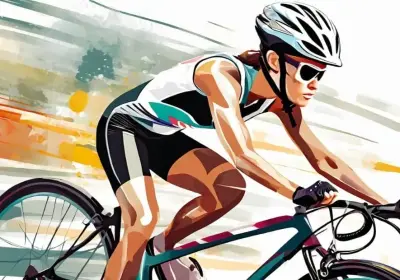
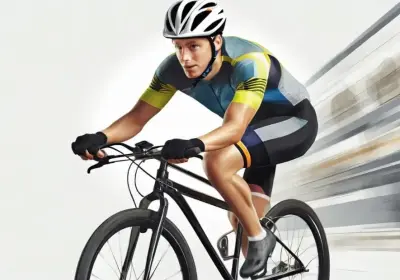
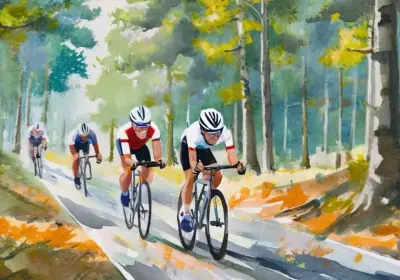
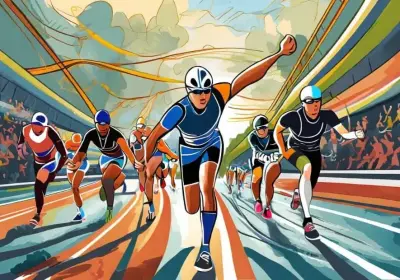
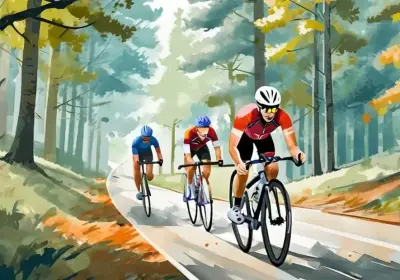
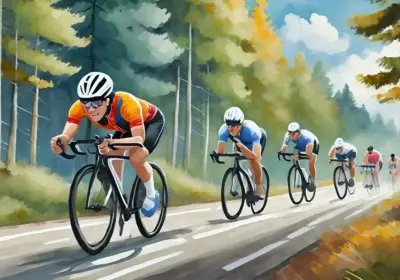
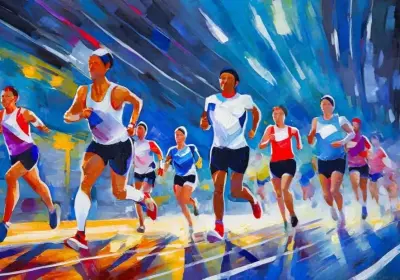

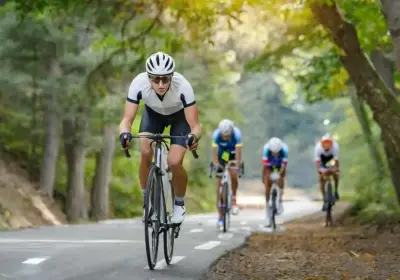
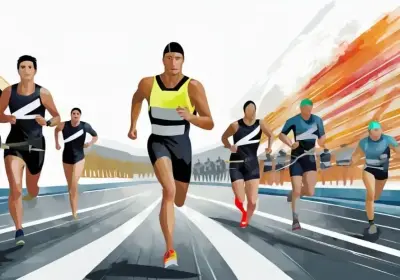
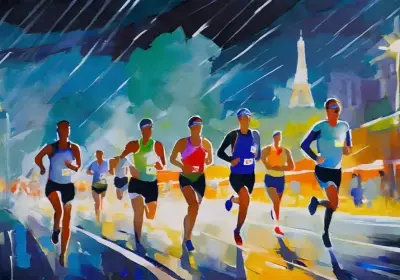
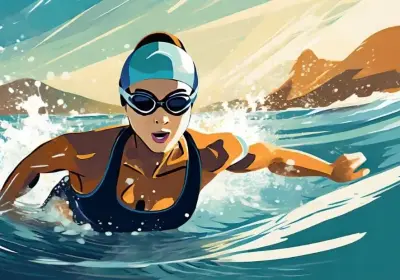
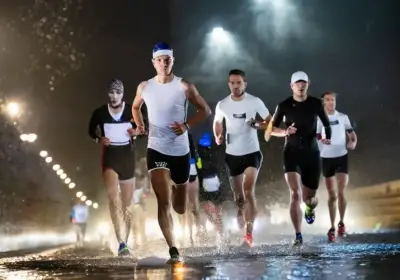
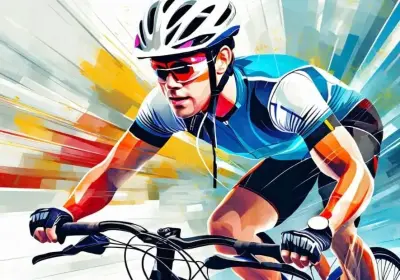
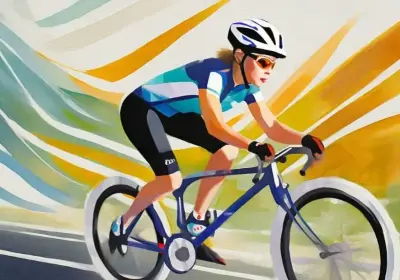
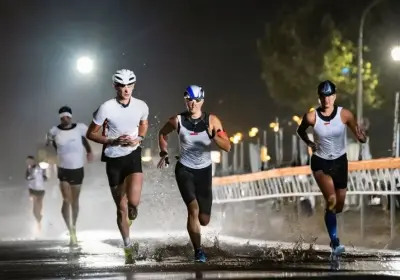

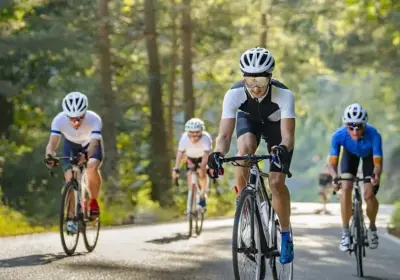
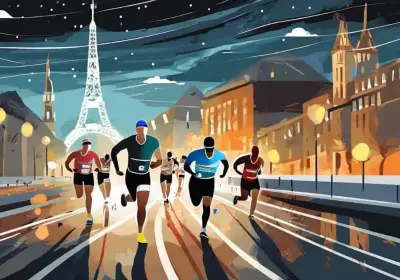
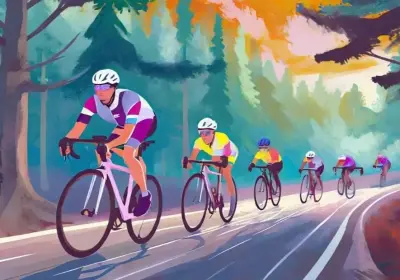
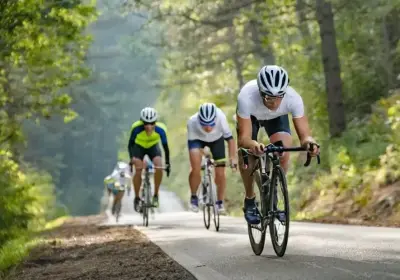
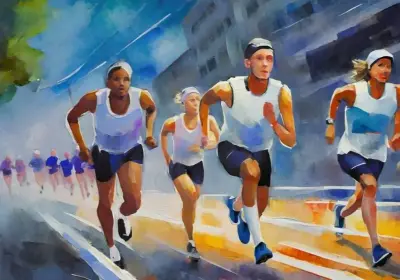
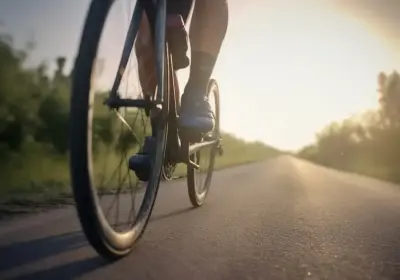
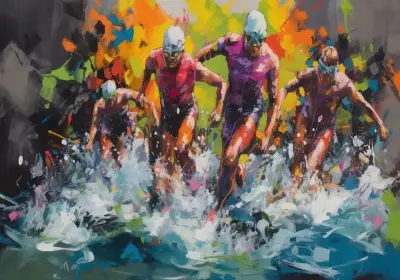

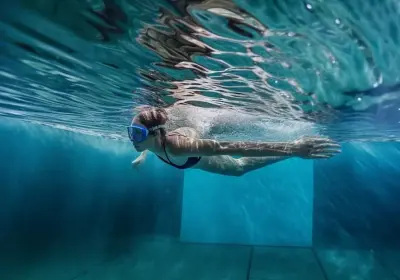
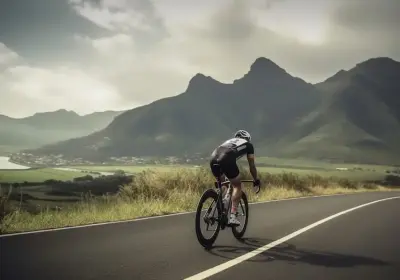
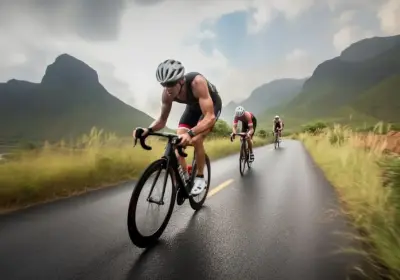


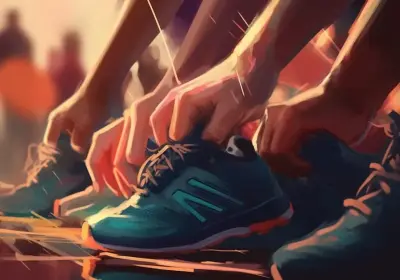





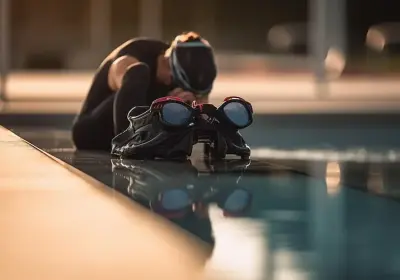
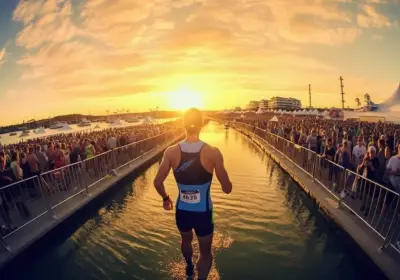
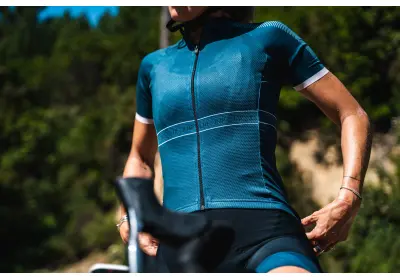
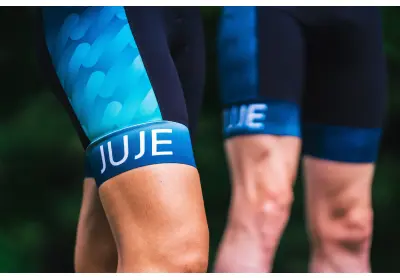



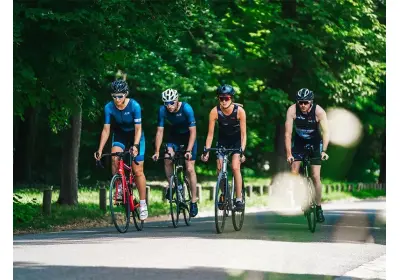
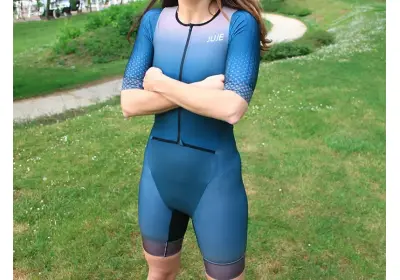

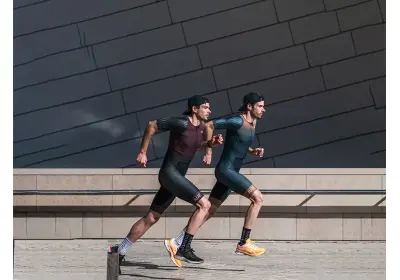
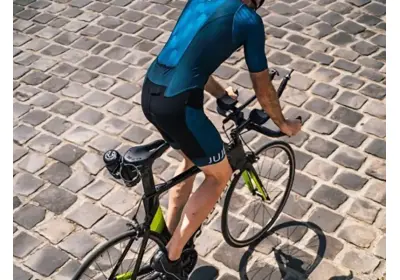
Leave a comment